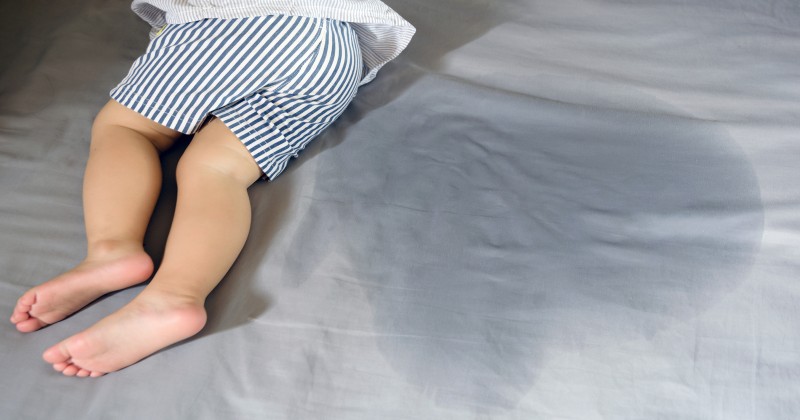
Bed-wetting, or nocturnal enuresis, is a common issue among children. While most kids outgrow it naturally, there are steps you can take to help your child stop bed-wetting. Here are five steps to consider:
1. Establish a Consistent Bedtime Routine:
– Ensure your child goes to bed and wakes up at the same time every day, even on weekends.
– Include a routine of using the bathroom before bedtime.
– Limit the intake of fluids in the evening, particularly caffeine-containing beverages.
2. Create a Positive and Supportive Environment:
– Avoid punishment or negative reactions to bed-wetting; it’s important to be patient and understanding.
– Praise and reward your child for dry nights, but do so in a low-pressure way.
– Encourage your child to take responsibility in a supportive manner, such as helping to change sheets, without making it feel like a punishment.
3. Implement Bladder Training Exercises:
– Encourage your child to hold their urine for a little longer during the day to strengthen their bladder muscles.
– Introduce “timed voiding,” where your child goes to the bathroom at regular intervals, gradually extending the time between bathroom visits.
4. Use Bed-Wetting Alarms:
– Bed-wetting alarms can help condition your child to wake up when they need to urinate. These alarms detect moisture and sound a buzzer to wake the child.
– Consistency is key, and it may take several weeks for the alarm method to be effective.
5. Consult a Healthcare Professional:
– If bed-wetting persists despite trying these steps, it may be beneficial to consult a pediatrician or urologist.
– A healthcare professional can rule out any underlying medical conditions and provide additional guidance or medication if necessary.

Post Your Comments